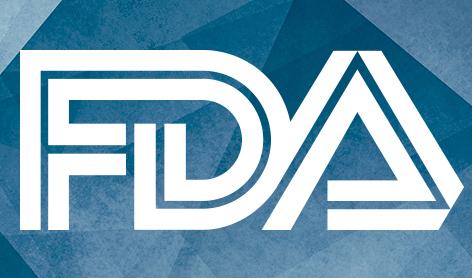FDA Updates Finerenone Label to Reflect Cardiovascular Outcomes Data

The US Food and Drug Administration has expanded the label of finerenone (Kerendia) to include findings from the phase 3 FIGARO-DKD cardiovascular outcomes study, according to a release from Bayer.
Announced on September 1, the label update comes approximately 14 months after Bayer’s first-in-class nonsteroidal mineralocorticoid receptor antagonist (MRA) received initial approval from the FDA and less than 2 weeks after data from the FIDELITY program presented at ESC Congress 22 detailed the benefits of use on all-cause mortality and sudden cardiac death.
“The FIDELIO-DKD and FIGARO-DKD studies demonstrated KERENDIA’s dual cardiorenal risk reduction in patients with chronic kidney disease associated with type 2 diabetes,” said George Bakris, MD, University of Chicago Medicine and principal investigator of FIDELIO-DKD, in the aforementioned statement. “This label update reaffirms KERENDIA as a fundamental pillar in the treatment algorithm to improve cardiovascular and renal outcomes in patients with chronic kidney disease associated with type 2 diabetes.”
A double-blind, placebo-controlled trial, FIGARO-DKD randomized 7437 patients from study sites in 48 countries in a 1:1 ratio to placebo therapy or finerenone. The primary outcome, which was assessed in a time-to-event analysis, was a composite of death from cardiovascular causes, nonfatal myocardial infarction, nonfatal stroke, or hospitalization for heart failure. To be considered eligible for the trial, patients needed a UACR of 30 to less than 300 and an eGFR of at least 60 ml/min/1.73m2. Investigators noted patients included in the trial were treated with RAS blockage that had been adjusted before randomization to the maximum dose on the manufacturer’s label.
Ultimately, 7352 patients were included in the trial’s final analyses, which were presented at ESC Congress 2021. Upon analysis, which included a median of 3.4 years of follow-up, a primary outcome event had occurred among 12.4% (n=458) receiving finerenone and 14.2% (n=519) receiving placebo therapy (HR, 0.87 [95% CI, 0.76-0.98]; P=.03), with this effect was mainly driven by a 29% relative reduction in risk of hospitalization for heart failure (HR, 0.71; 95% CI, 0.56-0.90). A 10% risk reduction in cardiovascular death was also observed during the trial (HR, 0.90 [95% CI, 0.74-1.09]).
In the release, Bayer pointed out the US label for finerenone now includes data from the phase 3 clinical trial program investigating kidney and cardiovascular outcomes in a population of more than 13,000 patients with type 2 diabetes and chronic kidney disease.
“Our large body of clinical data demonstrates that KERENDIA preserves kidney function and provides dual cardiorenal risk reduction in type 2 diabetes patients with a broad range of chronic kidney disease severity,” said Sameer Bansilal, MD, MS, FACC, Vice President, Cardiovascular, U.S. Medical Affairs at Bayer. “We are committed to equipping clinicians with treatment options, such as KERENDIA, that offer benefits to patients with chronic kidney disease associated with type 2 diabetes as patients work with their treatment teams to manage their disease and slow their chronic kidney disease progression.”